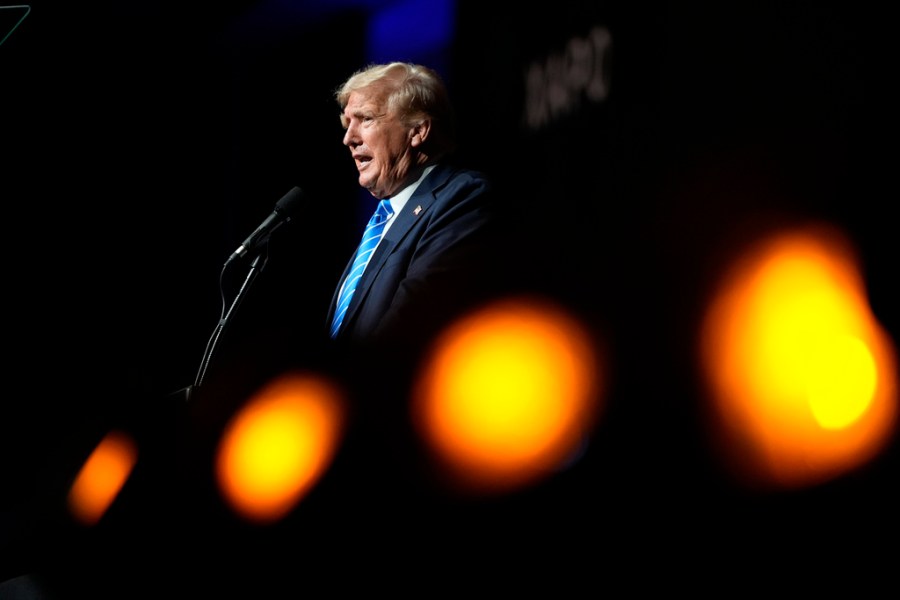As Donald Trump gears up for his second term, with the inauguration less than two weeks away, the crypto world is buzzing. Bitcoin prices have surged on the back of his bold promises — to turn the United States into a global hub for cryptocurrency innovation and to wield executive power in favor of crypto adoption. On the surface, this may seem like a dream come true for Bitcoin maximalists and crypto enthusiasts alike. But, I suggest, Trump’s love affair with Bitcoin isn’t a triumph of decentralized finance over the establishment; it’s the establishment tightening its grip over decentralized finance.
The Trojan Horse of Institutional Adoption
Bitcoin was born out of the 2008 financial crisis as a direct challenge to centralized authority and a financial system that prioritized the few over the many. Its pseudonymous creator, Satoshi Nakamoto, envisioned a currency immune to government manipulation. But as Bitcoin gains traction in Washington and Trump positions the U.S. as the world’s crypto capital, the line between revolution and co-optation blurs dangerously. His proposal to create a Bitcoin strategic reserve, mirroring the nation’s oil reserve, sends a clear signal: The government is moving to institutionalize and dominate what was once a symbol of anti-establishment defiance.
What begins as a reserve could evolve into heavy-handed oversight, including strict Know Your Customer (KYC) laws, unprecedented surveillance, and, potentially, taxation policies that bleed Bitcoin’s libertarian ethos dry. In time, Bitcoin could become just another cog in the machinery of state control.
A far cry from its anarchic origins.
Surveillance capitalism meets crypto
Trump’s affinity for Bitcoin is not an isolated phenomenon. It mirrors a broader societal shift where disruptive technologies, once heralded as tools of liberation, become instruments of power consolidation. Consider Silicon Valley, which began as a hub for dreamers, tinkerers and disruptors. Today, it’s a fortress of surveillance capitalism, closely aligned with government interests. Companies like Google and Meta now operate as quasi-government entities, collecting troves of data and shaping narratives under the guise of “public safety.”
The same trajectory looms for Bitcoin. With Trump’s pro-crypto agenda, we’re likely to see increased government partnerships with major crypto exchanges and blockchain firms. These partnerships could undermine the privacy and autonomy that attracted libertarians and anti-establishment figures to crypto in the first place.
Imagine a future where every Bitcoin transaction is logged, analyzed and weaponized — not just against criminals, but against ordinary citizens who dissent from the state’s agenda. You won’t have to imagine for long; that future is fast approaching. A Bitcoin true to its original design is fundamentally incompatible with government control.
The death of decentralization
For years, Bitcoin enthusiasts, myself included, have touted decentralization as its greatest strength. But decentralization doesn’t just happen; it requires a community fiercely resistant to centralized control. Under Trump’s administration, the U.S. could incentivize miners to relocate to American soil, lured by subsidies and promises of regulatory leniency. This concentration of hash power would not only undermine Bitcoin’s decentralized network but also make it vulnerable to state intervention.
Furthermore, Trump’s administration might push for a “patriotic” blockchain fork — a government-approved version of Bitcoin that meets regulatory standards while sidelining its more radical offshoots. Such a move would fracture the community, forcing developers and users to choose between the “official” Bitcoin and its underground counterparts. This bifurcation would weaken the network and dilute the ideological purity that has been central to Bitcoin’s identity. The very nature of decentralization thrives on geographic and ideological diversity, a bulwark against concentrated power.
Crypto’s existential crisis
Bitcoin was never just a currency — it was a philosophy, a rebellion against the financial status quo, much like punk rock was a rebellion against the polished conformity of mainstream music. Both emerged as disruptive forces, rejecting authority and refusing to conform to established norms. But just as punk eventually found its way into glossy magazines and corporate playlists, Bitcoin now risks being co-opted by the very institutions it sought to disrupt. What began as a defiant middle finger to the establishment risks becoming the hand that props it up.
The philosophy of Bitcoin, like that of punk rock, thrives on decentralization, autonomy and a relentless resistance to co-optation. But these ideals require constant vigilance and a widespread commitment to protecting the network from external control. If the crypto world celebrates mainstream adoption without questioning the strings attached, it risks betraying its foundational principles. Bitcoin’s magic doesn’t lie in market value or institutional approval; it lies in its defiance, its ability to offer a financial system free from the grasp of governments and corporations.
Satoshi didn’t create Bitcoin to join the establishment but to challenge it. If that ethos is lost, Bitcoin will no longer be a revolution — it will be a relic, a cautionary tale of what happens when rebellion sells out to the system it was meant to overthrow.
John Mac Ghlionn is a writer and researcher who explores culture, society and the impact of technology on daily life. His work appears in outlets like The New York Post and Newsweek.

